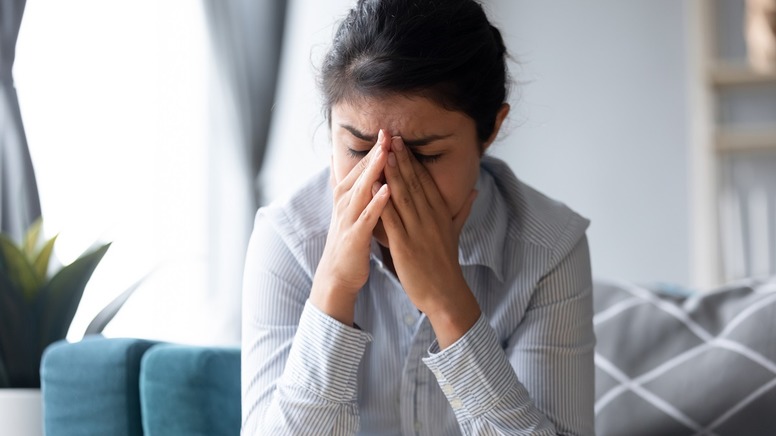Has your union representative made a difference for you and your colleagues? Then you can say thank you by nominating them for the Union Representative of the Year award.
News
4 out of 10 work remotely when they are sick

When you are ill, you have to call in sick, and then you have to focus on getting well. You are not meant to work.
That's how it should be, but that's far from the case for everyone. In a new population survey among 1,079 working Danes, 39 per cent answered that within the past six months they have worked from home, despite the fact that they were actually ill.
This corresponds to more than 1.1 million Danish employees who take care of work tasks even if their nose is running or they have a fever. By comparison, just one in three in the survey answered that when they are sick, they call in sick and then they don't work.
"It is shocking that so many also take work with them to the sickbed. There are no gray areas. If you are sick, you must call in sick, and you must have time and room to get well. In other words: you should not work while you are ill. I would strongly encourage all managers and employers to be clear in their assessment of expectations and make it clear to all their employees that they should of course not work when they are ill," says Malene Matthison-Hansen, chairperson of the Council of Employees in IDA.
The legacy of corona
Malene Matthison-Hansen believes that the shutdowns during the corona pandemic have had unfortunate side effects, which we are seeing now. We have been too inclined to uncritically extol flexibility as something beneficial to our working lives without seeing the negative consequences that unrestrained flexibility brings with it.
"We see the result of that now. The line between work and private life became unclear for many, especially during the shutdowns, and we are suffering from that now. We must re-establish the distinction by creating clear expectations about the solution of tasks. When this framework is not in place, it creates a culture where it is difficult to pull the plug and concentrate on getting well when you are sick without feeling guilty. It creates a great sense of insecurity for the individual if you are unsure whether you are doing your job well enough. And then it can be difficult to keep the computer off, even if you are ill," says Malene Matthison-Hansen, who also has good advice:
“Ask yourself what you would say to your friend or partner if they were working while they were ill. We often have unrealistic expectations of ourselves that we couldn't bring ourselves to impose on others. If you wouldn't advise your friend to work with the flu, you shouldn't do it yourself either," she says.
No fixed rules of thumb
According to Eva Jakobsen, who is a working life consultant at IDA, it is important to have a balance of expectations in the workplace so that employees do not feel unsafe or guilty when they call in sick.
"It is no use if your entire load is going to topple over because an employee is ill. You must know who you can pass on your tasks to, and then the manager must take responsibility for prioritising the department's tasks if challenges arise.
"You may not be able to make a fixed rule of thumb for when you are too ill to work from home, but you can ensure that you have a culture where the individual does not feel pressured to work when you really do not feel able to that", says Eva Jakobsen.
Eva Jakobsen is not surprised that many IDA members work from home, even if they are ill. The latest survey of members' stress levels showed that many take on extra work because they feel a high degree of responsibility towards their colleagues and workplace.
"It is hugely sympathetic, but it can have some serious consequences if you continue to ignore your own needs, for example for restitution. If you can't even close the computer when you're sick, it's a sign that there's something you need to talk about at work, because it's actually a right to be able to be sick until you're well again.